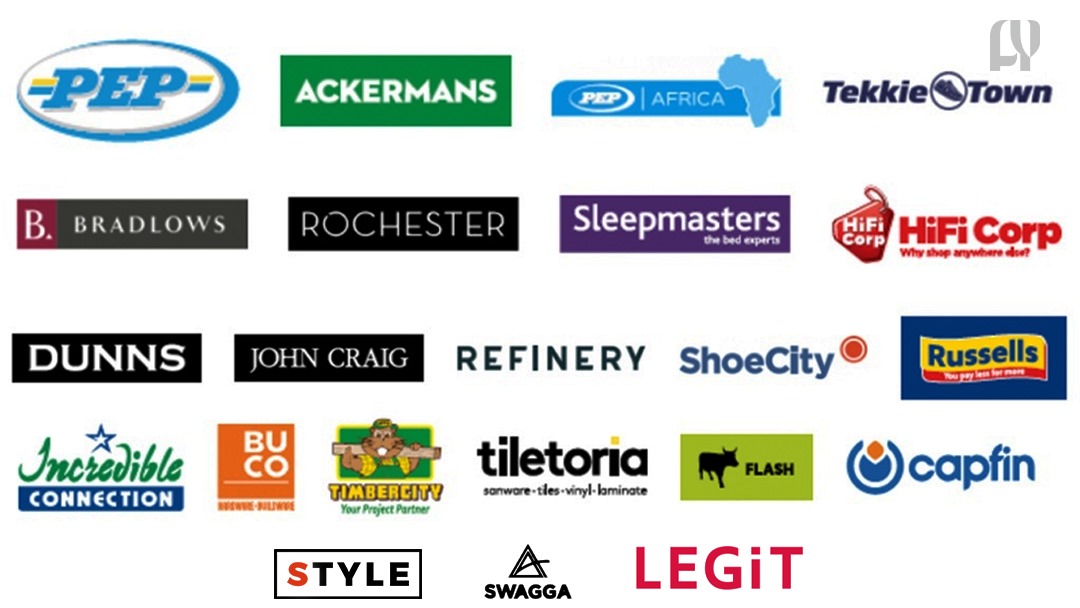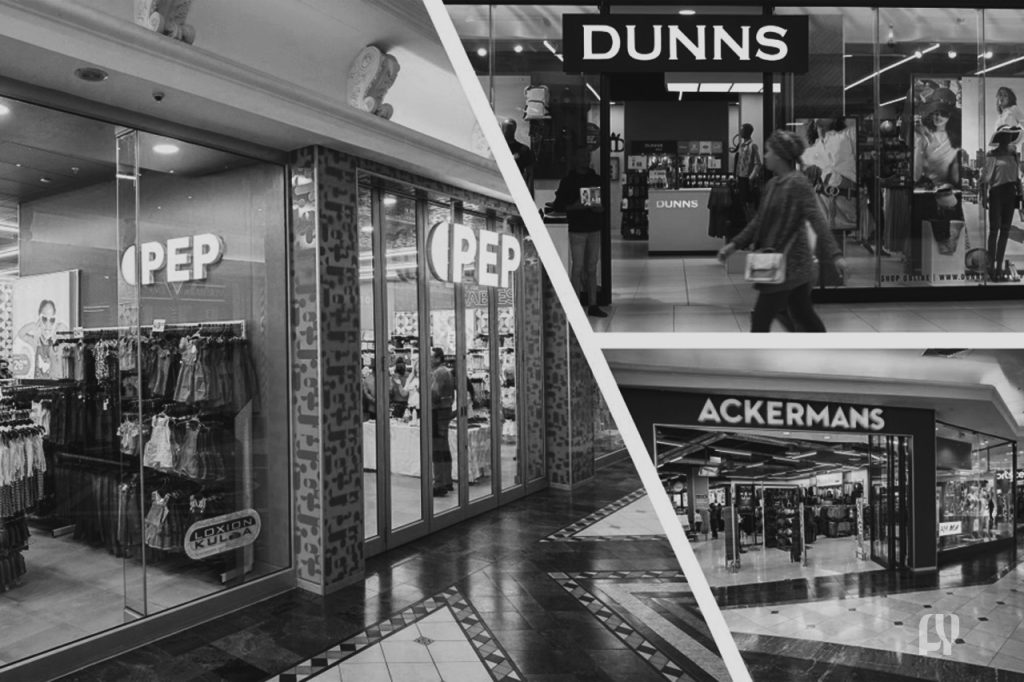Pepkor’s Strategic Retail Expansion: Acquiring Swagga, Legit, Boardmans, and Style from Retailability
Pepkor’s Strategy Retail Expansion: Acquiring Swagga, Legit, and More
Pepkor Holdings has announced its acquisition of four major brands—Swagga, Legit, Boardmans, and Style—from privately owned Retailability. This is a landmark deal poised to reshape Southern Africa’s retail landscape. The deal, valued at R1.9 billion, underscores Pepkor’s strategic retail expansion into the adult clothing sector while adding 462 stores across five African nations. This acquisition amplifies Pepkor’s presence in underserved markets. It also signals its ambition to dominate the continent’s value-driven retail space.
- Strategic Retail Expansion: A New Era for Pepkor
- What’s Included—and What’s Not
- Adultwear Market Growth: Pepkor’s Missing Puzzle Piece
- Integration Synergies: Efficiency Meets Scale
- Financial Implications: A Drop in the Ocean for Pepkor
- Leadership’s Vision: Quotes from the Top
- Competitive Landscape: Pepkor vs. The Continent
- Should You Invest in Pepkor?
- Stakeholder Impact: Winners and Watchouts
- The Road Ahead: Ambition Meets Execution
- FAQs Pepkor’s Strategic Retail Expansion of Swagga, Legit, Boardmans & Style
Strategic Retail Expansion: A New Era for Pepkor
Pepkor’s latest move is a calculated step toward addressing its under-representation in the adultwear category. The group has long been a titan in children’s, school, and baby apparel. This is achieved through brands like PEP and Ackermans. Its adult-focused offerings have lagged. The acquisition of Legit, Swagga, Style, and Boardmans fills this gap. It grants Pepkor immediate access to a mature customer base. They seek affordable, trendy apparel and homeware.
“This acquisition is a natural fit for our growth strategy,” said Tyrone Vieira, CEO of Pepkor Emerging Businesses. “These brands align with our vision to democratise fashion and lifestyle products for everyday Africans.”

The acquired stores span South Africa, Botswana, Lesotho, Namibia, and Eswatini. These stores will bolster Pepkor Speciality, a business unit housing Tekkie Town, Shoe City, and Dunns, to over 1,400 stores. Boardman’s online homeware arm will integrate into Pepkor Lifestyle, further diversifying its digital reach.
What’s Included—and What’s Not
Retailability will keep its Edgars, Red Square, Kelso, and Keedo brands, focusing on revitalising its remaining portfolio. Meanwhile, Pepkor’s acquisition includes:
- Legit: A women’s fashion giant with a cult fan base for budget-friendly office and casual wear.
- Swagga & Style: Youth-centric brands targeting trendy, value-conscious shoppers.
- Boardmans: A digital-first homeware retailer expanding Pepkor’s lifestyle vertical.
The exclusion of Edgars—a storied but struggling department store—highlights Pepkor’s selective approach. Analysts speculate that Retailability aims to streamline operations, while Pepkor doubles down on high-growth niches.
Adultwear Market Growth: Pepkor’s Missing Puzzle Piece
Pepkor’s strategic retail expansion into adultwear follows years of organic efforts. In early 2025, the group launched Ayana, a womenswear label now in 32 stores. They also acquired Choce Clothing to tap into plus-size markets. Legit’s integration provides instant scale with its 300+ stores. These stores offer a ready-made platform for cross-selling Pepkor’s financial services. These include Capfin loans and PEP’s layby programmes.
“Adultwear is fragmented, but Legit’s dominance gives us a foothold,” noted COO Sean Cardinal. “We’ll leverage our supply chain to reduce costs and pass savings to customers.”
Integration Synergies: Efficiency Meets Scale
The acquired brands will merge into Pepkor Speciality, leveraging the unit’s centralised sourcing, logistics, and credit services. Pepkor’s sprawling distribution network—honed through decades of operating PEP’s 2,500+ stores—will slash import costs and speed up delivery times.
Boardmans’ online platform will also gain from Pepkor Lifestyle’s infrastructure, unlocking same-day delivery in urban hubs. “Scale is our superpower,” Vieira added. “This deal isn’t just about new stores—it’s about optimising every rand spent by our customers.”
Financial Implications: A Drop in the Ocean for Pepkor
At less than 2% of Pepkor’s R96 billion market cap, the cash-funded deal is a low-risk bet. Investors reacted cautiously, with shares dipping 0.8% on the news, though analysts praised the long-term logic.
“Pepkor’s debt remains manageable, and this buy aligns with their core competencies,” said Andile Ndlovu, retail analyst at Avior Capital. “Legit’s EBITDA margins rise from 8% to 12% under Pepkor’s systems.”
Leadership’s Vision: Quotes from the Top
Tyrone Vieira emphasised cultural alignment: “Legit and Swagga’s teams share our ethos—value, accessibility, and community.” Meanwhile, Sean Cardinal hinted at future deals: “We’re eyeing gaps in menswear and footwear. Africa’s retail story is just beginning.”
Competitive Landscape: Pepkor vs. The Continent
Pepkor’s deliberate retail growth puts it in direct competition with competitors like Mr. Price, TFG, and Shoprite‘s emerging apparel brands. But it has a distinct advantage. This is due to its surpassing retail network and vertically integrated structure. This structure goes from industry to financial services.
“No one else offers credit, insurance, and retail under one roof,” Ndlovu noted. “That sticky ecosystem keeps customers loyal.”
Should You Invest in Pepkor?
With a dividend yield of 4.8% and a track record of resilient earnings, Pepkor appeals to defensive investors. Its focus on low-income households—a demographic less affected by economic downturns—adds stability. Risks include currency volatility and supply chain bottlenecks.
Stakeholder Impact: Winners and Watchouts
- Employees: Minimal layoffs expected; Pepkor plans to upskill Retailability staff.
- Customers: Wider selections and potential price drops due to economies of scale.
- Shareholders: Long-term value is likely, but integration costs may dampen short-term returns.
The Road Ahead: Ambition Meets Execution
Pepkor’s playbook is clear: dominate value retail, integrate vertically, and replicate its SA success across Africa. With talks underway to enter Nigeria and Kenya, this acquisition is merely the opening act.
As Cardinal put it, “Africa’s middle class is growing. We’re building the infrastructure to serve them—today, tomorrow, and for decades.”

FAQs Pepkor’s Strategic Retail Expansion of Swagga, Legit, Boardmans & Style
Why is Pepkor buying these brands?
Pepkor aims to strengthen its presence in the adultwear market, where it has been under-represented. The acquisition of Legit, Swagga, Style, and Boardmans provides immediate scale. It adds 462 stores. This expands its footprint across Southern Africa.
Will Retailability still run any brands?
Yes, Retailability will keep Edgars, Edgars Beauty, Red Square, Kelso, and Keedo. The deal only includes the four acquired brands, allowing Retailability to focus on revamping its remaining businesses.
How will this affect customers?
Customers can expect broader product selections and potential price reductions due to Pepkor’s economies of scale. Existing loyalty programs and store credit options can also be integrated with Pepkor’s financial services, like Capfin.
What does this mean for Pepkor’s competitors?
The deal intensifies competition with rivals like Mr Price and TFG. Pepkor gains a stronger foothold in affordable adult fashion. Its vast supply chain and credit offerings give it a pricing and convenience advantage.
Is Pepkor a good investment after this acquisition?
Analysts view the move as strategically sound, given Pepkor’s history of integrating brands efficiently. Short-term integration costs will impact earnings, making it more appealing for long-term investors.




